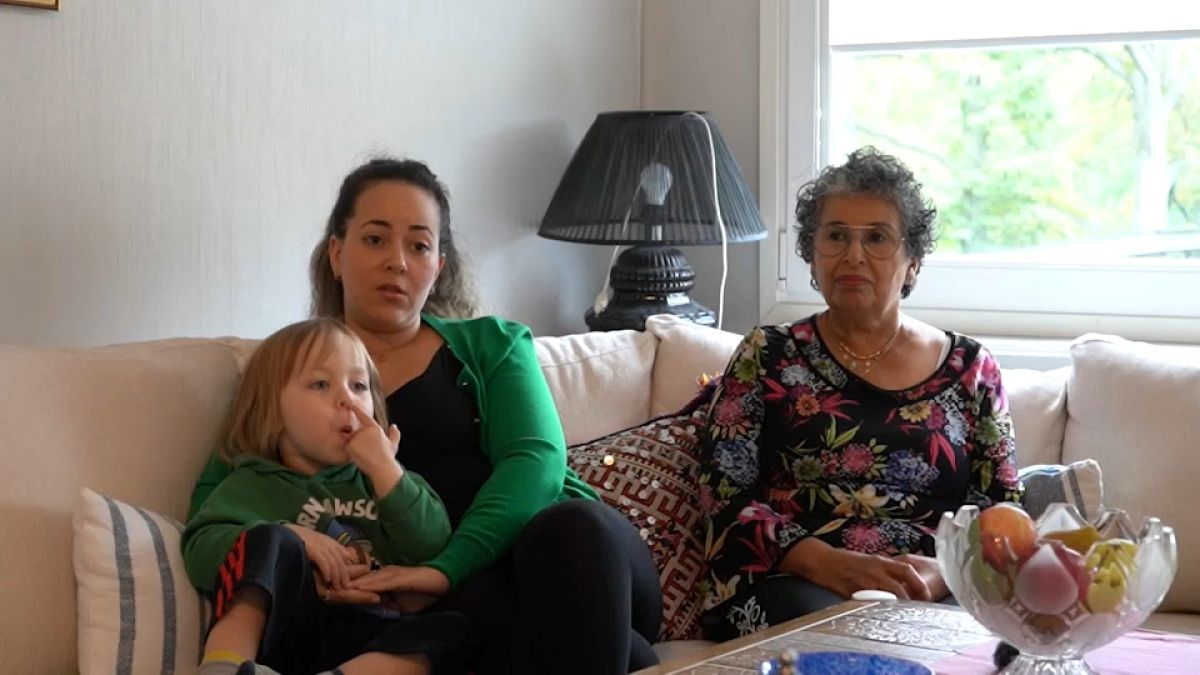In Sweden, parents now have the option to transfer paid parental leave days to individuals who are not their child’s legal guardian, including grandparents and friends. This new parental leave reform was implemented on July 1st, with the aim of providing families with more flexibility and promoting gender equality. The reform allows parents to transfer up to 45 days of their paid leave to someone insured for parental allowance, with a maximum of 90 days for single parents. This new law also allows retirees to take parental leave, with compensation based on their pension.
The new scheme has been met with positive feedback from parents like Maria Karlsson, a single parent in Stockholm who often relies on her mother for help with her three-year-old son. Maria’s mother, Zhor, a retired former employee of the Swedish Social Insurance Agency, sees the new scheme as beneficial for everyone. Maria was able to transfer about ten days to Zhor to assist with caring for her son. The ability to transfer parental leave days allows for greater flexibility in caregiving arrangements and provides financial support to the individual providing care.
Despite the positive reception of the new parental leave reform, there have been concerns voiced by critics who fear that the policy could contribute to outsourcing childcare responsibilities to relatives or professional caregivers. Labour organizations in the country have criticized the potential for the system to foster a ‘nanny system’. However, the Swedish government has reassured the public that measures will be in place to prevent welfare fraud and misuse of the system. The government’s intention with the new law is to enable parents to balance work and family life effectively while prioritizing the well-being of their children.
Sweden has a long history of promoting paid parental leave, being the first country to introduce paid parental leave for fathers in 1974. Today, fathers in Sweden take around 30% of the paid parental leave, according to the Swedish Social Insurance Agency. The new parental leave reform builds on this legacy by expanding the options for caregiving to include grandparents and friends. This move not only allows for more diverse caregiving arrangements but also contributes to a more equitable distribution of caregiving responsibilities between parents and their extended support network.
The option to transfer paid parental leave days to individuals who are not the child’s legal guardian is a significant step towards enhancing work-life balance for parents in Sweden. By allowing for more flexible caregiving arrangements and providing financial support to those who assist with childcare, the new scheme aims to support parents in balancing their personal and professional lives effectively. The positive feedback from parents who have already utilized the new system demonstrates its potential to benefit families across Sweden and promote a more inclusive approach to caregiving and parental leave.
Overall, the new parental leave reform in Sweden represents a progressive step towards a more balanced and equitable caregiving system. By allowing parents to transfer paid parental leave days to relatives and friends, the government is providing families with increased flexibility and support in managing childcare responsibilities. While concerns have been raised about the potential for outsourcing childcare, the government has emphasized the importance of preventing welfare fraud and ensuring that the system is used appropriately. With the continued implementation of this reform, Sweden is paving the way for a more inclusive and supportive approach to parental leave and caregiving.










